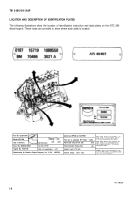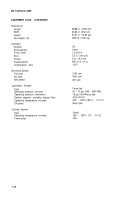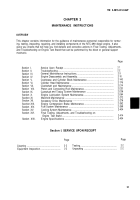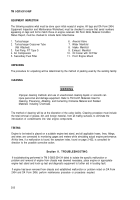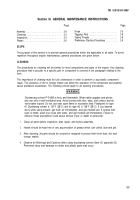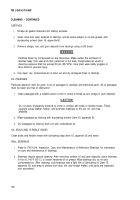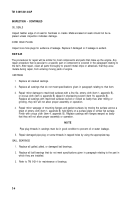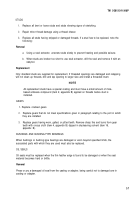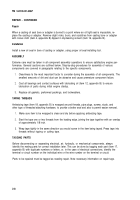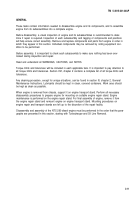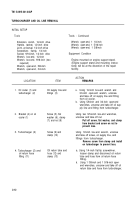TM-5-2815-241-34-P - Page 30 of 738
TM 5-2815-241-34&P
REPAIR - CONTINUED
Repair
When a casting oil seal bore or adapter is burred to a point where an oil tight seal is impossible, re-
place the casting or adapter. Remove slight nicks, burrs, and scratches from casting bore or adapter
with crocus cloth (item 4, appendix B) dipped in drycleaning solvent (item 16, appendix B).
Installation
Install a new oil seal in bore of casting or adapter, using proper oil seal installing tool.
ASSEMBLY
Extreme care must be taken in all component assembly operations to ensure satisfactory engine per-
formance. General cautions are outlined below. Step-by-step procedures for assembly of various
components are covered in paragraphs relating to the specific components.
1.
Cleanliness Is the most important factor to consider during the assembly of all components. The
smallest amounts of dirt and dust can be abrasive and cause premature component failure.
2.
Coat all bearings and contact surfaces with lubricating oil (item 12, appendix B) to ensure
lubrication of parts during initial engine startup.
3.
Replace all gaskets, preformed packings, and lockwashers.
TAPING THREADS
Antiseizing tape (item 18, appendix B) is wrapped around threads, pipe plugs, screws, studs, and
other type of threaded attaching hardware, to provide a better seal and also to permit easier removal.
1.
Make sure item to be wrapped is clean and dry before applying antiseizing tape.
2.
Start the tape one or two threads from the leading edge, joining the tape together with an overlap
of approximately 1/8 inch.
3.
Wrap tape tightly in the same direction you would screw in the item being taped. Press tape into
threads without ripping or cutting tape.
TAGGING PARTS
Before disconnecting or separating electrical, air, hydraulic, or mechanical components, always
identify the mating parts for correct installation later. This can be done by tagging each part (item 17,
appendix B) with duplicate numbers or letters, or, in the case of electrical connections, identify the
terminal or circuit number on the individual wire or the wire number on the terminal or circuit.
Parts to be repaired must be tagged as needing repair. Note necessary information on repair tags.
2-8
Back to Top

